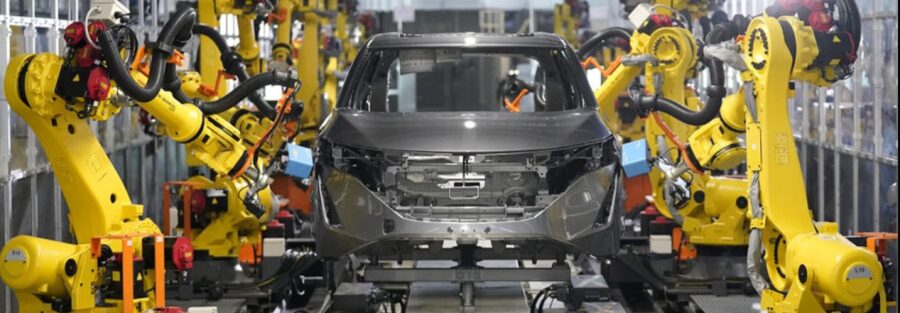Mexico’s automotive industry is gearing up for a surge in electric vehicle (EV) production, with experts projecting a growth of 179% by the end of the year, according to a recent report by American Industries Group.
The anticipated boom is largely attributed to the influx of new Asian automakers, particularly from China, says Gerardo González, Director Regional of Guanajuato, American Industries Group.
González highlights the pivotal role of the industrial real estate sector in propelling Mexico’s automotive sector. The Bajio and the northwest of the country are locked in a fierce competition to attract foreign investment, striving to establish themselves as the preferred destinations for international companies to establish operations. This competition has been further fueled by nearshoring and the global shift towards electrification in the automotive industry.
The northeast of the country region holds 41% of the component supply for EVs within Mexico, while the Bajío region contributes 40%, according to American Industries. Guanajuato, for example, is solidifying its position as the front-runner in Mexico’s electromobility sector.
Mexico exported EVs worth US$2.636 billion to the US market last year, securing its place among the top four countries with the highest revenues from EV exports, according to the Mexican Automotive Industry Association (AMIA). Japan emerged as the leader in this category, amassing US$6.381 billion, closely followed by South Korea at US$5.874 billion.
Mexico has unique advantages that make it a n attractive investment destination for nearshoring, including its proximity to the US, the USMCA, a skilled yet cost-effective workforce and its seamless integration into North America’s productive landscape.
The country’s automotive industry has attracted significant investment in 2023, with major players such as Tesla and Tata Group planning to build gigafactories in the north of Mexico. Tesla’s plant, for example, will serve as the production hub for its next-generation EVs, a move supported by a governmental investment of US$5 billion.
Jetour also plans to invest US$3 billion in 2023 in Mexico to establish an assembly plant specializing in both combustion vehicles and EVs. This plant will be located in the Bajío region.
The future of Mexico’s automotive industry seems promising thanks to its proactive measures to attract foreign investment to position itself in the booming EV industry.



